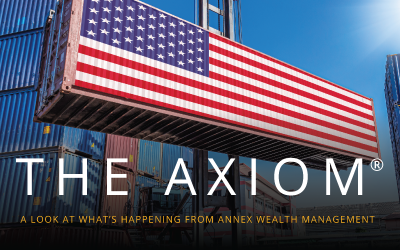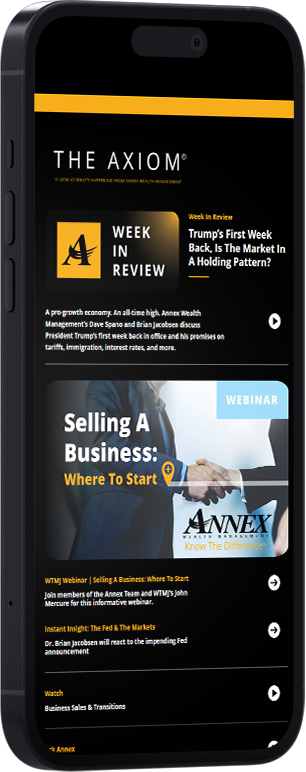
A year ago, this week’s MoneyDo began with these words: “Now more than ever, it’s critical that you know where you can get a copy of your credit report and what’s on it.”
At the time, we were discussing the Equifax data breach, which affected the data of approximately 143 million Americans.
Equifax is one of only three major credit reporting agencies, so essentially anyone who had applied for credit – whether a credit card, home or auto loan, or even applied to rent an apartment – could have been affected.
A year later, it’s just as critical that you’re aware of what’s on your credit report. A report published in July revealed the top 10 data breaches in 2018 (so far) – a list that included Facebook, Panera, Under Armour, Saks, Lord & Taylor and My Heritage[i].
Last week in the Axiom, we reported that Congress had mandated that you can freeze your credit for free. (You can listen to our conversation on that topic here.)
Before you decide whether you should freeze your credit or not, get familiar with your credit report.
Why is it important that you look at your credit report?
- Your credit report, and by association your score, has a large impact on your cost of credit and other aspects of your life.
- Your score becomes the benchmark that banks and lenders use to determine what your interest rate is or whether you even qualify, therefore they frequently request your information.
- There are three credit reporting agencies; Experian, Transunion and Equifax. Each reporting agency uses different metrics to monitor and report on your credit.
- If you’re in the process of applying for a loan or opening a credit card, those companies are requesting your credit from some of the three reporting agencies.
- It’s important, given recent events, that you also take a look at who is requesting your credit.
- Every time someone requests your credit, the agencies make notes of it. When you request your credit report you’ll be able to see when and who requested access to your credit.
- A common tactic by criminals is to REOPEN an existing card or credit line.
How can I find out what is on my credit report?
Monitoring your credit creates self-awareness of credit issues and can be useful in detecting fraud. We suggest monitoring your credit every few months, particularly if you’ve been affected by the Equifax or the more recent Facebook breach.
The Fair Credit Reporting Act (FCRA) requires each of the nationwide credit reporting companies (Equifax, Experian and TransUnion) to provide you with a free credit report, not your score, once every 12 months. Therefore, in a one year period you would be able to receive three reports, once from each reporting company.
We recommend that every few months you go to https://www.annualcreditreport.com/index.action , download and save one of your credit reports to a secure location.
Keep a record of the reports you will have benchmark to look back on and compare to. Therefore, as time goes by and you review your report again you can see if there is anything new or unusual in your report.
Who looks at my credit report?
Do you recognized the companies or entities looking at your credit?
Your credit report allows you to see who has accessed your information, and if there are any disputes. Use that function to protect your identity and information.
- As mentioned earlier, every time you apply for credit, you authorize the creditor to view your credit. The creditor views your score and your credit history, an instance that is noted by the three credit agencies.
- Even after you have received credit, your creditor may periodically request your credit to verify that you haven’t opened a lot of accounts or have high balance on your revolving cards.
- Be wary of companies or entities viewing your report without your authorization.
[i] https://blog.barkly.com/biggest-data-breaches-2018-so-far






